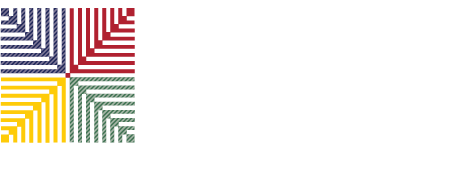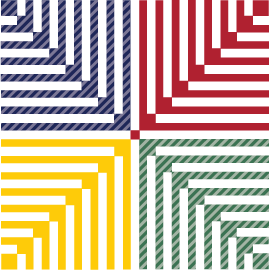Israeli-French filmmaker Tamara Erde spoke with us about the personal evolution she went through to be able to approach the topic of her drama short Disney Ramallah, which explores the complexities of parenting while also participating in resistance during a time of national oppression and upheaval, such as that experienced by Palestinians during the Second Intifada.


BPFF: Tell us how you initially came up with the idea for this film.
TE: I was serving in the Israeli army during the Second Intifada. The thing that had a great impact on me was to see the way [Palestinian] families are being punished by their homes being demolished [by Israel]. I started questioning it. I also do documentaries, so during certain researches for those, I heard a lot about home demolitions. I decided to treat this topic from a child’s perspective and to see how home demolitions affects those people’s lives.
Another thing that interests me a lot is that in many cases we have these good and bad, black-and-white constructs like “terrorist.“ It interested me to treat this subject in another way. And to look at – yes, there is this horrible thing that is called a terrorist, but also to see it from different angles — from his family’s perspective, from his child’s perspective. To understand how someone who is not, for example, a terrorist like the character of the father in Disney Ramallah — in the society and situation in which he lives he finds himself trapped, in a way. Just to see how we from the outside can look at these simplistic definitions in other more nuanced ways. To look at these people as human beings first and foremost. Not to justify what they do, but just to see them as human beings. Because they have children and they have families, and when we choose to punish them in a certain way, then it affects the whole society.
BPFF: You must have gone through a personal evolution to come to be able to see them that way yourself. Was there something that changed you? Was it your experience in the army?
TE: It was a long process, I guess. The film I just screened here and in Toronto last month, This is My Land, is a documentary about the educational systems of Palestine and Israel and the way they teach the history of the conflict. For me, I went back now after choosing to live in France for the last few years. When I was in school [in Israel], I was very indoctrinated, and I was very Zionist. I believed in everything that I was told. During my army service, I started having doubts. But afterwards it was a long process. I started going to Palestinian cities, I started meeting Palestinians, I started reading about 1948 and the Nakba, etc. So it was really a long process, trying to get to see it in another way.
BPFF: Did making your films also help in that process?
TE: Yes, Yes. Definitely. I have many friends who say, “We would like to go there and meet them” and so on, but they have their lives, their jobs, and their friends, and they don’t read. I think that making films – when I chose to make films, part of my work is going there [to Palestinian areas], meeting these people [Palestinians], and hearing their stories. It helps for sure, yeah.
BPFF: To go there, to see the complexity, to see the humanity, to see that this is not as simple as you were taught.
TE: Yes.
BP: What overall purpose did you start with when making this film? Was it about showing this man in the light you have just described, or was there something more?
TE: It was also showing how the way we [Israel] are doing things today influences the next generation. In this film, it is the child. How can we try and get out of this cycle when this is what children are living everyday? We always say “change, and peace, etc.,” but when this is what their children are living and going through, how can we imagine this could be possible?
BPFF: How was it to work with Ali Suliman in this film?
TE: It was great. I really, really love Ali. He is one of the actors I most appreciate. I had always imagined Ali in it from the very beginning. And we were in contact from the very beginning. So for me it was obvious that it should be him. And it was amazing also to see him working with the other actors – for example, with the child, Ahmad. His real name is Abd al-Rahman. The kid was quite shy at first, and Ali really helped him to become an actor.
BPFF: How did you find the child actor Abd al-Rahman?
TE: It was really hard. We had to take a child from Paris because we had very little money to make the film and we were filming in Paris, and already I had to fly Ali from Palestine to Paris, so I didn’t have the budget to fly a child and his parents as well. It was too complicated.
I saw many children. The problem was that children at this age — it is very difficult; they are very delicate. In the end, most of the Palestinian children [who auditioned] already had French manners and gestures because they grew up in France, or they didn’t support the camera well, they were too sensitive.
And then I had a casting director who came across this child, who is actually Egyptian, which made me very scared at first because it is really another dialect and it was really a lot of work. But he had just come from Egypt to join his parents who had been living in France for some time, and he had lived through the revolution in Egypt with his uncle, so he had a very charged background. And when I was talking to him or working with him, I could feel it. So I decided to take him. Then we worked with him for months with a Palestinian coach for the dialect.
BPFF: Wow. And without giving the story away, was there an impact of the overall story on this boy who starred in your film? It is a hard story.
TE: The boy, it is hard for me to say what exactly changed for him, but it made him realize the situation of kids in Palestine, because even though Egypt and Palestine are close, you don’t always know what is going on there. So it was interesting.
BPFF: Tell us about your other projects, especially your upcoming film about the history of Deir Yassin.
TE: Crazy People Here is now in post-production. I hope it will come out in the next year.
BPFF: Are you working mostly from France now?
TE: Yes.
BPFF: Do you still go back to Israel?
TE: Yes. Most of the things I film are there, so I go many times. I spend quite a lot of time there, yes.
BPFF: Thanks so much for speaking with us.
–Kate Rouhana for BPFF
Disney Ramallah screens Saturday, October 25, 2014 at the Museum of Fine Arts, Boston at 3 pm as part of a thematic thread on Stolen Childhood. View the full festival schedule and buy tickets here.

